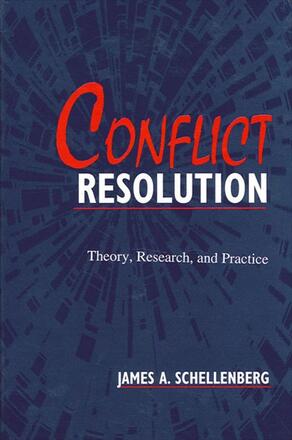
Conflict Resolution
Theory, Research, and Practice
Alternative formats available from:
Reviews classic and contemporary theories of conflict, focusing on five main ways people try to resolve their conflicts--coercion, negotiation, adjudication, mediation, and arbitration.
Description
Broadly defining "conflict resolution," James A. Schellenberg gives systematic coverage to five main ways people may try to resolve their conflicts: coercion, negotiation, adjudication, mediation, and arbitration. The main theories of conflict, both classic and contemporary, are reviewed under four main categories: individual characteristics theories, social process theories, social structural theories, and formal theories.
James A. Schellenberg is Professor of Sociology at Indiana State University. His previous books include An Introduction to Social Psychology; Masters of Social Psychology; The Science of Conflict; Conflict between Communities; Primitive Games; An Invitation to Social Psychology; and Exploring Social Behavior.
Reviews
"The resolution of conflict in our society promises to become a major professional specialization as the democratization process continues to bring onto the stage of history the needs and interests of formerly suppressed groups. The need for first rate research and thought in this burgeoning area of specialization is great. Schellenberg brings the process of conflict resolution into a wide range of everyday realities so that the reader may become freshly cognizant of the many areas of social life to which the process is relevant and useful. This for many will be an awakening. " — Seth Fisher, University of California, Santa Barbara
"This book is absolutely fascinating. There are many books on conflict resolution, but none, that I know of, take the author's omnibus review approach of formal theory, experiments, qualitative research, classical social theory, etc. The author manages to blend many varieties of theory and research into a seemingly seamless whole that genuinely illuminates an otherwise overwhelmingly large field of inquiry. " — Stjepan Mestrovic, Texas A&M University